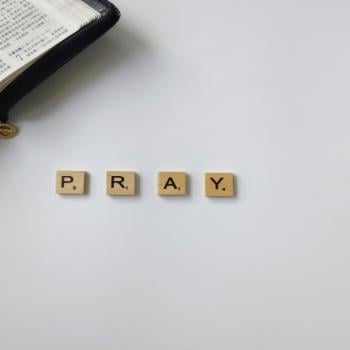Lectionary Reflections
Isaiah 62:6-12
January 1, 2012
It is that terrible time again to make resolutions for another New Year. I say "terrible" because many of those resolves—astonishing weight loss, a more pleasant demeanor, the attempt to abide the office jerk—seem so feasible on December 31, but often fade with the sunset of January 1. If the road to hell is paved with good intentions, at this time of year the road becomes an interstate, and hell ain't half full.
But the turn of the year does not only call forth resolutions. It also augurs predictions: who will win the Super Bowl? What will be the academy award winner for best picture? Or best song? Who will win the White House in 2012? Our family has long written these predictions on scraps of paper, and then tried the next December to remember just where those scraps may be hiding. This is one of the dangers of our golden years.
If I may stretch our Bible just a bit, let me suggest that Isaiah 62 contains both resolutions and predictions. I cannot say if they were offered by the prophet at some change-of-the-year party around the punch bowl or shouted in loud oracular voice from the top of Jerusalem's walls, but I can say that both his resolutions and his predictions are decidedly odd and decidedly wonderful.
First, the resolutions. The prophet resolves at the beginning of the chapter "not to keep silent" for Zion's sake. That appears to mean that Jerusalem, that symbolic center of the life of the people Israel, has need of vocal support. The monstrous exile of the 6th century B.C.E. that witnessed the destruction of the temple, the palace, and the walls of the ancient city, has given way to attempts to rebuild the holy place late in that same century. However, the rebuilt city has not begun to match the glorious memory, held in the minds and hearts of the returning Babylonian exiles. Indeed, around 515 B.C.E., the prophet Haggai tries to buoy up the sagging spirits of the city builders in the face of what they see as a city devoid of "its former glory," a place "in their sight as nothing" (Hag. 2:3). I would suggest that Isaiah 62 may have been composed sometime during the same era when Israel was struggling to find its way in the new and faded landscape of what remained of Judah and Jerusalem.
Hence, Isaiah resolves to keep shouting for the future of Jerusalem. Why? Because the promise for the city has long been that it will be the very center of the universe! In that earlier oracle of another Isaiah, chapter 2, the vision is that Jerusalem will be one day "raised above the hills," and as a result, "all nations will stream to it" in order that YHWH "will teach us God's ways and that we may walk in God's paths." Those ways include the end of war, as swords become plowshares and spears pruning hooks, in his unforgettable metaphor. This later Isaiah will keep on shouting "until the nations will see your vindication, and all kings will see your glory." In addition, Jerusalem will get a new name. In a pun, "Jerusalem" will now be called "derushah," that is "the one sought out."
But there remains one more resolution from Isaiah, and it is the decidedly odd one. Not only does the prophet promise a personal 24-hour filibuster on behalf of Jerusalem, he further states that he will "establish watchers" ("post sentinels" NRSV) on the walls of Jerusalem, who "all day and all night will never be silent" (Is. 62:6). You can begin to imagine that Jerusalem will not be a place where sleep will be easy, considering Isaiah and his appointed watchers howling all day long! But at whom will they howl? Here is the odd thing. "You who remind YHWH, do not rest." Well, that sounds fairly traditional; the prophet and his watchers are to shout at YHWH day and night on behalf of Jerusalem and its longed-for splendor. That could well be a metaphor of continuous prayer and would be a common way to urge the people to maintain their prayerful connection with their God.
But note verse 7. The criers cry in order to "give YHWH no rest, until YHWH establishes Jerusalem and (literally) makes it a song in the earth." Isaiah and his loud chorus will keep up their din until YHWH gets off the divine duff and creates Jerusalem as the world's center for justice and righteousness, where all the nations can learn from YHWH what they so desperately need to know. Isaiah resolves to shout, and he demands that the wall chorus shout with him, to YHWH until YHWH acts on behalf of Jerusalem and hence for the world. I am reminded of that Lukan unjust judge who decides to give that persistent widow the justice she craves just because she has exhausted and terrified him with her constant shouting (Lk. 18:2-5). How much more, says Jesus, will God give to those who ask in persistence? Obviously, Isaiah believes the same and resolves never to cease demanding from YHWH what YHWH has promised concerning Jerusalem.





